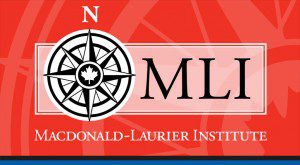Writing in the National Post, University of Winnipeg President Lloyd Axworthy says all Canadians should have the opportunity to go to university.
Axworthy argued against the motion “Too many Canadian kids are going to university”, which was debated on April 29, 2015 as part of the Macdonald-Laurier Institute’s second Great Canadian Debate of 2015. MLI Senior Fellow Ken Coates argued against.
By Lloyd Axworthy, April 29, 2015
Let me begin with a direct counterpoint to the proposition that there are too many kids in Canadian universities. Instead, I believe the opposite. We should be affirming the right and need for Canada to offer opportunity and access to any of its citizens to have the choice to attend university.
It is a belief grounded in my experience as president of a downtown urban university for 10 years, working to open doors for many individuals young and old, aboriginal, new Canadians, disadvantaged and disabled. Watching with awe and admiration as those considered as marginal or beyond the orbit of higher education blossomed into good students with an appetite to achieve. I see education as a fundamental building block in the wellbeing of democracy and justice in our community, necessary for the enhancement of individual talent and as an experience that must be open and available to all those who seek its benefits.
This belief is confirmed after reading the assertion of Dr. Ken Coates that university enrolment should be reduced by 30 per cent, which, in fact, is a prescription for a return to an elitism in higher education, excluding all those who aspire but who are handicapped by family background, finances and starting gate disadvantages.
Those who are presently the apostles of a “back to the trades” argument use the nostrum that Canada biases its funding towards university and away from skilled trades.
This is not borne out by figures from the OECD, which show that we stand only 17th in young people who have finished university. Data also show that the university educated still hold a wage advantage, and in the latest recession were less vulnerable to being unemployed.
And here is an important fact: Since the economic downturn in 2008, there has been a net increase of 865,000 jobs for university graduates, compared to 435,000 net new jobs for college and trades graduates, while 510,000 jobs were lost for those with no postsecondary education. University graduates are obtaining high quality, full-time jobs after graduation.
So why this attack mode of discourse against universities? Is it simply a money grab as the public funding thins out, a beggar-thy-neighbour approach, a conservative reaction against the broadening of university education? Whatever the reason, it’s a mug’s game that diverts attention from real issues beginning with the unequal spread of participation that leaves one-third of young Canadians without any postsecondary learning, and a continuing equality gap in Canada.
As Andrew Parkin of the Canadian Council of Education Ministers points out: “There is a problem with arguing that, if we want more college graduates in order to address anticipated skills shortages, we need fewer university ones. If the goal is to better align education with the needs of the labour market, we need to do better than engage in a zero-sum trade-off between the college and university sectors.”
Often overlooked are the increasingly seamless connections between all levels of education. At the University of Winnipeg we had partnership programs with local colleges, even high schools in offering joint programs, combining academic and skill courses. Learning was not just a matter of specializing in one set of skills, but leaning to write, analyze, innovate — developing a more holistic form of education. There is a move toward experiential learning, on-the-ground practicums, employer/university joint programs and social enterprise projects within the university.
And, that’s what we would often hear from employers. They wanted employees who could handle increasingly complicated tasks, and be able to communicate that with their co-workers. As Nicholas Kristof of The New York Times writes, “liberal arts equip students with communications and interpersonal skills that are valuable and genuinely rewarded in the labour force, especially when accompanied by technical abilities.”
The future job market is not set in stone. The powerful forces of technology, global competition, new research into cognitive learning abilities and the advent of robotics will propel significant change in the labour market, and who succeeds and who is left behind.
Ken Coates himself admits that it is difficult, if not impossible, to predict what will be the labour market demands in the future. It seems a leap of tortured logic to then recommend a substantial change in the higher educational opportunities of young Canadians without knowing what the outcome will be.
When I became president at the University of Winnipeg in 2004, I had a mandate to reset the strategic direction of our growing, downtown urban campus into an educational institution that is open and reflective of the social and economic realities that surround it. To respond, we established summer camps, brought inner city kids onto campus, established an opportunity fund that has resulted in 1,500 low-income young men and women to come to university, and from that base move on to jobs in a variety of callings
And I can say that, when we look at the impacts of those learning choices on thousands of young people who had never thought of university and never believed that they would ever attend, we know that positive changes are possible, that reforms are feasible.
For me the task is to tap every young Canadian on the shoulder, offering the prospect of learning at the post-secondary level; this is the kind of goal we should be aiming for, not the reduction of opportunities in a purposeless competition among institutions.
Lloyd Axworthy is former president of the University of Winnipeg and former Canadian foreign minister.




